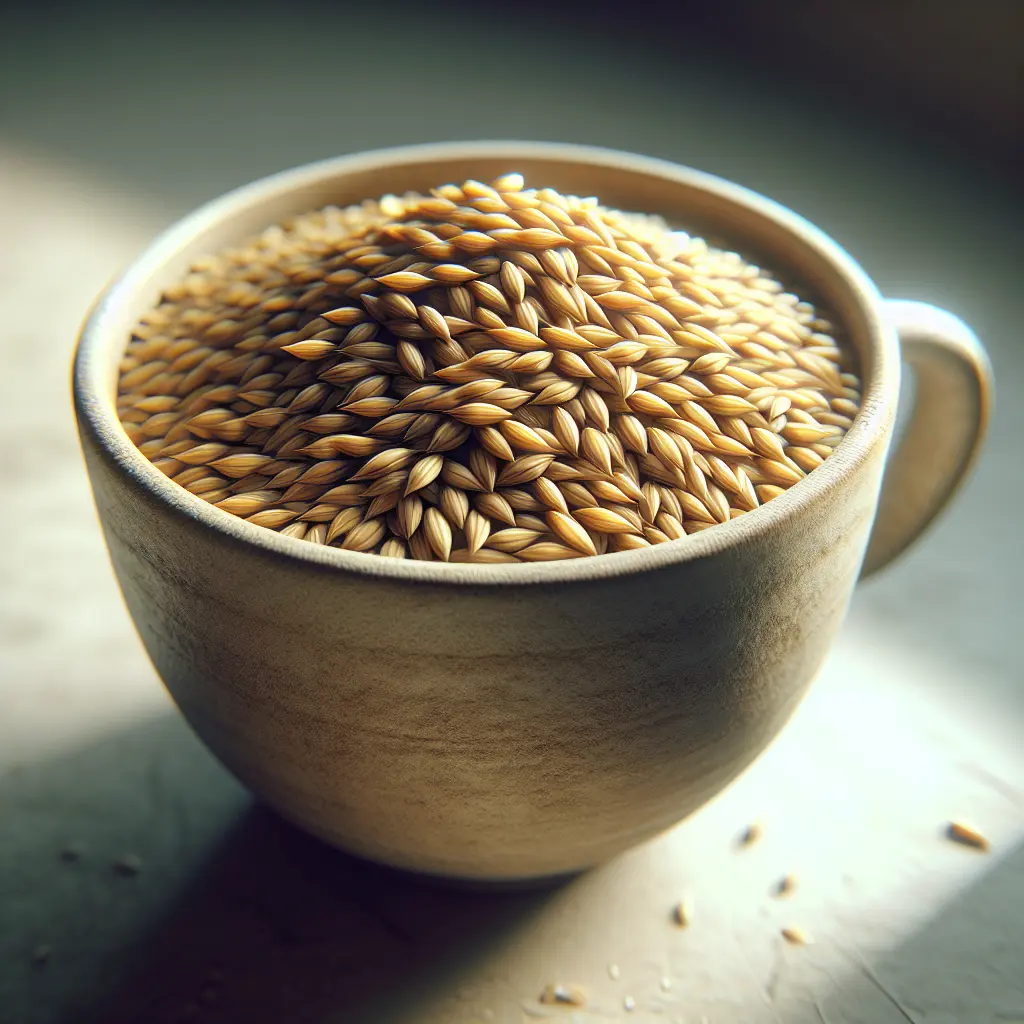Kamut: An Ancient Grain with Modern Nutritional Benefits
Kamut is an ancient grain that has been cultivated for centuries, prized for its nutritional value and unique flavor. This versatile grain is a member of the wheat family, but it is more nutrient-dense than common wheat varieties.
Nutritional Composition of Kamut
Every 1 cup (170g) of cooked kamut provides an impressive array of nutrients:
- Calories: 227
- Protein: 9.8g
- Fat: 1.4g
- Carbohydrates: 47g
- Fiber: 7.4g
- Sugar: 5.3g
Kamut's high protein content makes it an excellent source of essential amino acids, which are the building blocks of protein in the body. It is also a rich source of dietary fiber, which supports digestive health and promotes satiety. Additionally, kamut contains a significant amount of iron, magnesium, zinc, selenium, and vitamins B1, B2, and B3.
Health Benefits of Kamut
1. Improved Digestion: The high fiber content of kamut helps regulate digestion and prevent constipation. Fiber adds bulk to stools, making them easier to pass and reducing the risk of digestive issues.
2. Blood Sugar Control: Kamut has a low glycemic index (GI), meaning it releases glucose slowly into the bloodstream. This helps maintain steady blood sugar levels and reduces the risk of insulin resistance and type 2 diabetes.
3. Reduced Inflammation: Kamut contains antioxidants and anti-inflammatory compounds that help protect against chronic inflammation. Inflammation is linked to various health issues, including heart disease, cancer, and arthritis.
4. Boosted Immunity: Kamut is a good source of vitamins and minerals, including vitamins B1, B2, and B3, which are essential for a healthy immune system. These vitamins support white blood cell production and enhance the body's ability to fight infections.
Incorporating Kamut into Your Diet
Kamut can be easily incorporated into your diet as a substitute for other grains such as rice, quinoa, or pasta. Here are some ways to enjoy kamut:
- Cook it like rice as a side dish.
- Add it to salads for extra protein and fiber.
- Use it as a base for grain bowls with your favorite toppings.
- Bake with kamut flour to make nutritious bread and pastries.
With its exceptional nutritional profile and versatility, kamut is a valuable addition to a healthy diet. Whether you are looking to improve digestion, control blood sugar, reduce inflammation, or boost immunity, kamut is an excellent choice for achieving your health goals.
How many calories are in Kamut?
Each 1 cup of Kamut contains 227 calories.
Kamut Nutritional Information
| Nutrient | Amount per 1 cup (172g) |
|---|---|
| Calories | 227 Calories |
| Protein | 9.8g |
| Fat | 1.4g |
| Saturated Fat | 0.1g |
| Cholesterol | 0mg |
| Carbohydrates | 47g |
| Dietary Fiber | 7.4g |
| Sugar | 5.3g |
| Sodium | 0.014mg |
| Potassium | 0.2821mg |
| Calcium | 0.015mg |
| Iron | 0.003mg |
